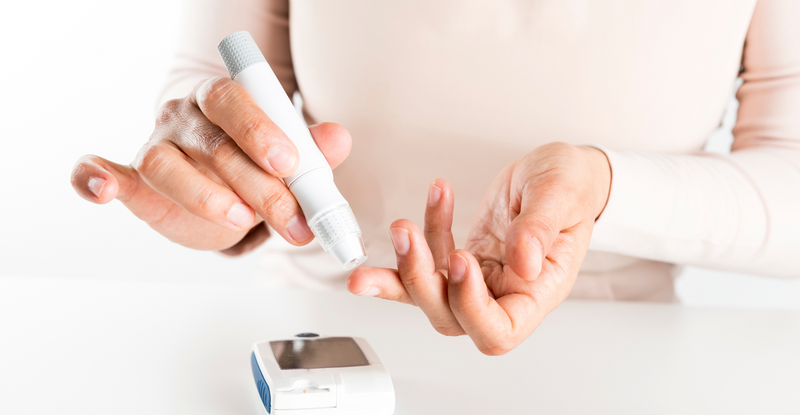High blood sugar, or hyperglycemia, is a common problem for people with diabetes. It occurs when the body has too much glucose in the bloodstream, either because it's not producing enough insulin or because it's not using insulin properly. In this article, we'll explore the risks associated with high blood sugar and how to bring it down.
High Blood Sugar Risks
Hyperglycemia risk can lead to a number of health problems if left untreated. These include:
- Nerve damage: Risks of hyperglycemia can damage the nerves in your body, which can cause tingling, numbness, and pain in your extremities.
- Kidney damage: Over time, hyperglycemia can damage the blood vessels in your kidneys, which can lead to kidney disease or even kidney failure.
- Eye damage: High blood sugar can damage the blood vessels in your eyes, which can lead to vision problems or even blindness.
- Heart disease: High blood sugar level can contribute to the buildup of plaque in your arteries, which can lead to heart disease and other cardiovascular problems.
How to Bring High Blood Sugar Down
If you have high blood sugar, it's important to take steps to bring it down as quickly as possible. Here are some tips for doing so:
- Check your blood sugar: The first step in bringing blood glucose levels down is to check your blood sugar levels regularly. This will help you track your progress and adjust your treatment plan as needed.
- Take your medication: If you have diabetes, it's important to take your medication as prescribed. This may include insulin injections, oral medications, or other treatments.
- Exercise: Exercise can help lower blood sugar levels by increasing insulin sensitivity. Aim for at least 30 minutes of moderate exercise, such as brisk walking or cycling, most days of the week.
- Drink water: Drinking plenty of water can help flush excess sugar out of your bloodstream and prevent dehydration.
- Adjust your diet: Making dietary changes can also help bring high blood glucose down. Focus on foods that are low in sugar and carbohydrates, such as non-starchy vegetables, lean proteins, and healthy fats.
High blood sugar can be a serious health problem for people with diabetes, but it can be managed with the right treatment plan.
By regularly checking your blood sugar levels, taking your medication as prescribed, exercising, drinking water, and making dietary changes, you can bring your blood sugar down and reduce your risk of developing complications.
If you're struggling to manage your blood sugar levels, be sure to talk to your healthcare provider for guidance and support.
Always consult your physician before beginning any program. This general information is not intended to diagnose any medical condition or to replace your healthcare professional. If you experience any pain or difficulty, stop and consult your healthcare provider.




Leave a comment
This site is protected by hCaptcha and the hCaptcha Privacy Policy and Terms of Service apply.